



To my children
"I refuse to belong to a religion that will not not have me as a member."
-Ibn Warraq
(with apologies to Groucho Marx)
"You hate our Cassandra cries and resent us as allies, but when all is said, we ex-Communists are the only people on your side who know what it's all about."
-Arthur Koestler
"The predicament of Western civilization is that it has ceased to be aware of the values which it is in peril of losing."
-Arthur Koestler
CONTENTS
PART 1: THEORY AND PRACTICE OF APOSTASY IN ISLAM
PART 2: TESTIMONIES SUBMITTED TO THE ISIS WEB SITE
PART 3: TESTIMONIES OF BORN MUSLIMS: MURTADD FITRI
PART 4: TESTIMONIES OF WESTERN CONVERTS: MURTADD MILLI
APPENDICES
PREFACE
 11 the testimonies here are witnesses to the authors' courage, for a free discussion of Islam remains rare and dangerous, certainly in the Islamic world and even in our politically correct times in the West. A surprising number of the apostates decided to write under their real names, a triumphant gesture of defiance and freedom. Many, on the other hand, have chosen to write pseudonymously, and since this is a fact that seems to irritate many in the secular West, I shall briefly indicate the reasons why. Apostasy is still punishable by long prison sentences and even death in many Islamic countries such as Iran and Pakistan, and as many of our authors have relatives in those countries, whom they regularly visit, it is common sense and simple prudence not to use their real names. Others still do not wish to unnecessarily upset husbands, wives, parents, and close relatives who, for the most part, remain ignorant of their act of apostasy.
11 the testimonies here are witnesses to the authors' courage, for a free discussion of Islam remains rare and dangerous, certainly in the Islamic world and even in our politically correct times in the West. A surprising number of the apostates decided to write under their real names, a triumphant gesture of defiance and freedom. Many, on the other hand, have chosen to write pseudonymously, and since this is a fact that seems to irritate many in the secular West, I shall briefly indicate the reasons why. Apostasy is still punishable by long prison sentences and even death in many Islamic countries such as Iran and Pakistan, and as many of our authors have relatives in those countries, whom they regularly visit, it is common sense and simple prudence not to use their real names. Others still do not wish to unnecessarily upset husbands, wives, parents, and close relatives who, for the most part, remain ignorant of their act of apostasy.
The opinions expressed, and their manner of expression, in the testimonies are the individual responsibility of each author. As editor, I do not always or necessarily share the sentiments of the contributors, some of whom would now describe themselves as deists, agnostics, or even Christians. We are all, however, united in totally rejecting Islam, and prefer living in a democracy, where a firm separation of religion and state is in place, to living under an Islamic theocracy.
After the name of each author in part 3 1 have added in brackets the author's country of origin, to give an idea of the geographical range of the apostates and their cultural background. In one case, although the author was born in the United States, I have indicated the country of origin of his parents, again to indicate the cultural background of the kind of Islam in which he grew up.
Where does one go for spiritual and intellectual sustenance once one has abandoned Islam? One could join and participate in the activities of the following organizations founded expressly for former Muslims, for a totally uninhibited but necessary critique of the religion they have left behind but which they see as a danger for democratic societies:
? Institute for the Secularisation of Islamic Society (ISIS)
? Faith Freedom International
? Advocates of Article 18
? Apostates of Islam
I have devoted some more pages to the above organizations in appendix B.
I have tried not to be too pedantic about the diacritical marks necessary for a scientific system of transliterating Arabic proper names and words. In part 1 I have tried to be as rigorous as possible, while in the appendices I have carefully transliterated the names of Muslim authors and the Arabic titles of their works. However, I have not transliterated each and every Arabic name or Arabic word in the extensive quotes given in the appendices. In the forty-five or so testimonies, I have only occasionally-though not, I hope, obsessively-intruded to add the correct transliterated form of an Arabic name or religious term.
At the beginning of appendix A, part 3, 1 have explained that for the verse numbering (and only for the verse numbering) of the Koranic quotes, I have used M. Pickthall's translation, The Meaning of the Glorious Koran (London, 1930). Pickthall was a Muslim, and his translation is highly respected by all Muslims and is easily available. However, for the actual translation of the verses I have employed various works indicated in appendix A, part 3.
PART 1
THEORY
AND PRACTICE
of APOSTASY
IN ISLAM
1
APOSTASY
INTRODUCTION: APOSTASY IN JUDAISM, GREEK AND ROMAN RELIGIONS, AND CHRISTIANITY
 postasy in some form or other seems to have occupied Judaism, Christianity, and even Greek and Roman religions, despite the fact that the notion of exclusivity was alien to the two Classical religions. The attitudes and acts toward those these religions regarded as apostate developed over several centuries. In Judaism, the apostate who abandons his ancestral religion for Christianity, for example, is considered a traitor, and by 100 C.E. the rabbis had in place a prayer that read, "For apostates let there be no hope. The dominion of arrogance do thou speedily root out in our days. And let Christians and the sectarians perish in a moment. Let them be blotted out of the book of life." By the third century C.E., the rabbis had legal power to expel apostates from Judaism. In the Classical world, we had the edict of Diocletian against the Manichaeans (297 C.E.), which read, "It is the most serious crime to reject what once and for all has been arranged and established by the ancestors." In Christianity from the third century onward, apostasy meant paganism, and was punished ever more severely. Indeed, for the early church "apostasy was an inexpiable offense. After baptism there was no forgiveness of this sin."' By 445 C.E., "two edicts directed that persons having betrayed the holy faith shall be segregated from the community of all men, shall not have testamentary capacity, shall not inherit, shall forfeit their position and status, and shall be branded with perpetual infamy." 2 Interestingly enough, the Christians carried on the persecution of the Manichaeans started by Diocletian in 297 C.E.
postasy in some form or other seems to have occupied Judaism, Christianity, and even Greek and Roman religions, despite the fact that the notion of exclusivity was alien to the two Classical religions. The attitudes and acts toward those these religions regarded as apostate developed over several centuries. In Judaism, the apostate who abandons his ancestral religion for Christianity, for example, is considered a traitor, and by 100 C.E. the rabbis had in place a prayer that read, "For apostates let there be no hope. The dominion of arrogance do thou speedily root out in our days. And let Christians and the sectarians perish in a moment. Let them be blotted out of the book of life." By the third century C.E., the rabbis had legal power to expel apostates from Judaism. In the Classical world, we had the edict of Diocletian against the Manichaeans (297 C.E.), which read, "It is the most serious crime to reject what once and for all has been arranged and established by the ancestors." In Christianity from the third century onward, apostasy meant paganism, and was punished ever more severely. Indeed, for the early church "apostasy was an inexpiable offense. After baptism there was no forgiveness of this sin."' By 445 C.E., "two edicts directed that persons having betrayed the holy faith shall be segregated from the community of all men, shall not have testamentary capacity, shall not inherit, shall forfeit their position and status, and shall be branded with perpetual infamy." 2 Interestingly enough, the Christians carried on the persecution of the Manichaeans started by Diocletian in 297 C.E.
While Christianity and Islam each claimed to be the sole custodian of God's final revelation to mankind, and neither admitted salvation outside its own system of beliefs,' Hinduism and Buddhism have never entertained any notion of exclusivity; hence the total absence of any idea of apostasy. Articles on apostasy in encyclopedias pass the latter two religions by.4

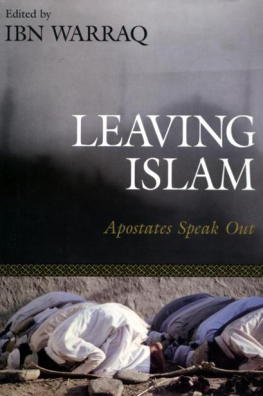
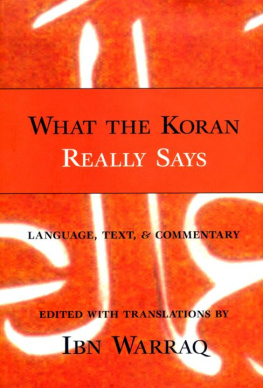
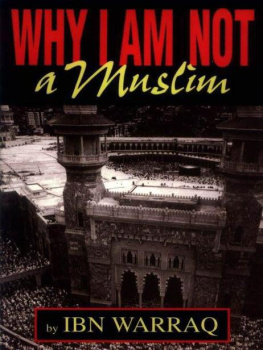
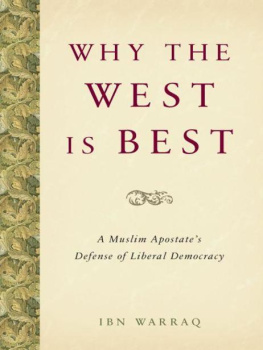
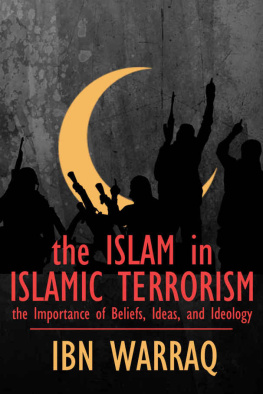
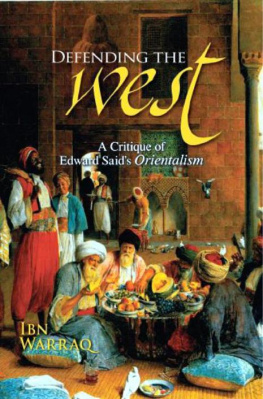
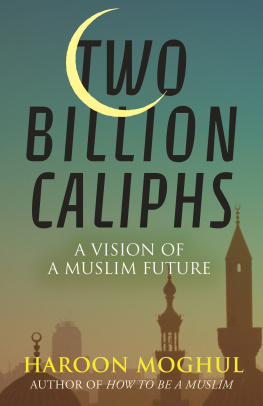
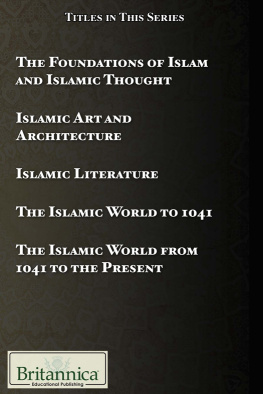

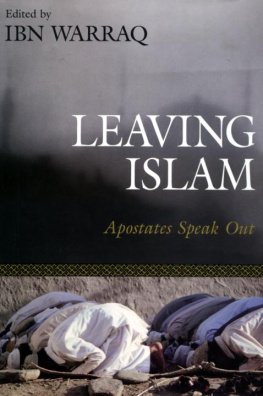
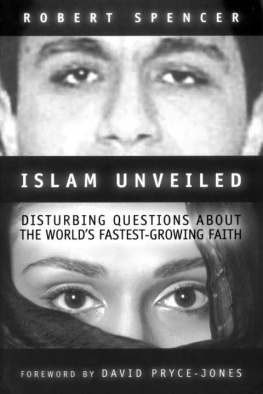
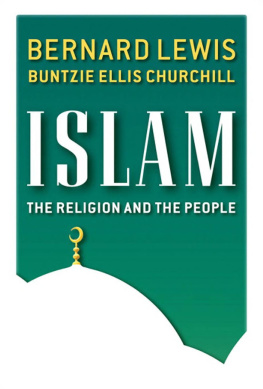
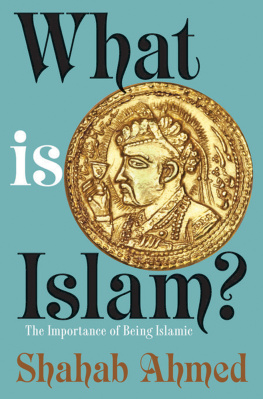
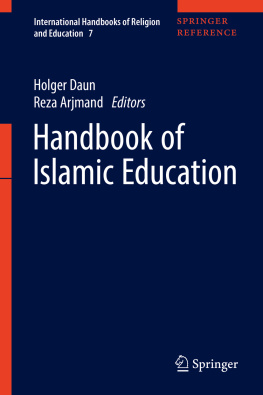
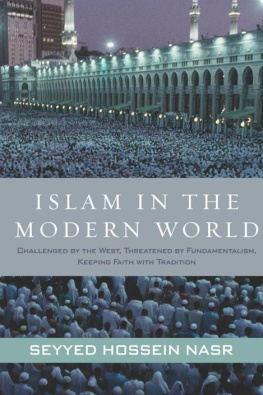





 11 the testimonies here are witnesses to the authors' courage, for a free discussion of Islam remains rare and dangerous, certainly in the Islamic world and even in our politically correct times in the West. A surprising number of the apostates decided to write under their real names, a triumphant gesture of defiance and freedom. Many, on the other hand, have chosen to write pseudonymously, and since this is a fact that seems to irritate many in the secular West, I shall briefly indicate the reasons why. Apostasy is still punishable by long prison sentences and even death in many Islamic countries such as Iran and Pakistan, and as many of our authors have relatives in those countries, whom they regularly visit, it is common sense and simple prudence not to use their real names. Others still do not wish to unnecessarily upset husbands, wives, parents, and close relatives who, for the most part, remain ignorant of their act of apostasy.
11 the testimonies here are witnesses to the authors' courage, for a free discussion of Islam remains rare and dangerous, certainly in the Islamic world and even in our politically correct times in the West. A surprising number of the apostates decided to write under their real names, a triumphant gesture of defiance and freedom. Many, on the other hand, have chosen to write pseudonymously, and since this is a fact that seems to irritate many in the secular West, I shall briefly indicate the reasons why. Apostasy is still punishable by long prison sentences and even death in many Islamic countries such as Iran and Pakistan, and as many of our authors have relatives in those countries, whom they regularly visit, it is common sense and simple prudence not to use their real names. Others still do not wish to unnecessarily upset husbands, wives, parents, and close relatives who, for the most part, remain ignorant of their act of apostasy.

 postasy in some form or other seems to have occupied Judaism, Christianity, and even Greek and Roman religions, despite the fact that the notion of exclusivity was alien to the two Classical religions. The attitudes and acts toward those these religions regarded as apostate developed over several centuries. In Judaism, the apostate who abandons his ancestral religion for Christianity, for example, is considered a traitor, and by 100 C.E. the rabbis had in place a prayer that read, "For apostates let there be no hope. The dominion of arrogance do thou speedily root out in our days. And let Christians and the sectarians perish in a moment. Let them be blotted out of the book of life." By the third century C.E., the rabbis had legal power to expel apostates from Judaism. In the Classical world, we had the edict of Diocletian against the Manichaeans (297 C.E.), which read, "It is the most serious crime to reject what once and for all has been arranged and established by the ancestors." In Christianity from the third century onward, apostasy meant paganism, and was punished ever more severely. Indeed, for the early church "apostasy was an inexpiable offense. After baptism there was no forgiveness of this sin."' By 445 C.E., "two edicts directed that persons having betrayed the holy faith shall be segregated from the community of all men, shall not have testamentary capacity, shall not inherit, shall forfeit their position and status, and shall be branded with perpetual infamy." 2 Interestingly enough, the Christians carried on the persecution of the Manichaeans started by Diocletian in 297 C.E.
postasy in some form or other seems to have occupied Judaism, Christianity, and even Greek and Roman religions, despite the fact that the notion of exclusivity was alien to the two Classical religions. The attitudes and acts toward those these religions regarded as apostate developed over several centuries. In Judaism, the apostate who abandons his ancestral religion for Christianity, for example, is considered a traitor, and by 100 C.E. the rabbis had in place a prayer that read, "For apostates let there be no hope. The dominion of arrogance do thou speedily root out in our days. And let Christians and the sectarians perish in a moment. Let them be blotted out of the book of life." By the third century C.E., the rabbis had legal power to expel apostates from Judaism. In the Classical world, we had the edict of Diocletian against the Manichaeans (297 C.E.), which read, "It is the most serious crime to reject what once and for all has been arranged and established by the ancestors." In Christianity from the third century onward, apostasy meant paganism, and was punished ever more severely. Indeed, for the early church "apostasy was an inexpiable offense. After baptism there was no forgiveness of this sin."' By 445 C.E., "two edicts directed that persons having betrayed the holy faith shall be segregated from the community of all men, shall not have testamentary capacity, shall not inherit, shall forfeit their position and status, and shall be branded with perpetual infamy." 2 Interestingly enough, the Christians carried on the persecution of the Manichaeans started by Diocletian in 297 C.E.